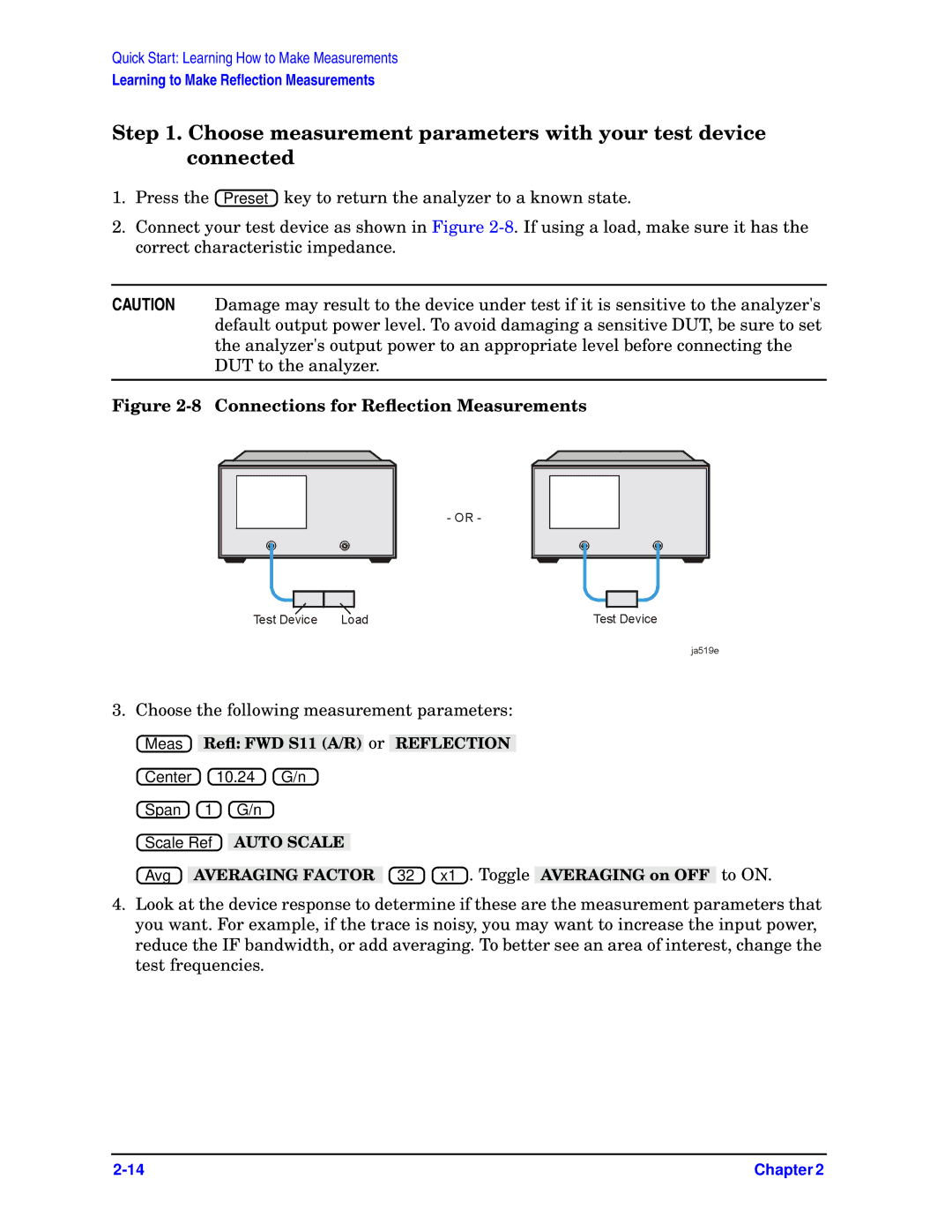
Quick Start: Learning How to Make Measurements
Learning to Make Reflection Measurements
Step 1. Choose measurement parameters with your test device connected
1.Press the ![]() Preset
Preset![]() key to return the analyzer to a known state.
key to return the analyzer to a known state.
2.Connect your test device as shown in Figure
CAUTION Damage may result to the device under test if it is sensitive to the analyzer's default output power level. To avoid damaging a sensitive DUT, be sure to set the analyzer's output power to an appropriate level before connecting the DUT to the analyzer.
Figure 2-8 Connections for Reflection Measurements
3.Choose the following measurement parameters:
![]() Meas
Meas![]() Refl: FWD S11 (A/R) or REFLECTION
Refl: FWD S11 (A/R) or REFLECTION
![]() Center
Center![]()
![]() 10.24
10.24 ![]()
![]() G/n
G/n ![]()
![]() Span
Span![]()
![]() 1
1![]()
![]() G/n
G/n ![]()
![]() Scale Ref
Scale Ref![]() AUTO SCALE
AUTO SCALE
![]() Avg
Avg ![]() AVERAGING FACTOR
AVERAGING FACTOR ![]() 32
32 ![]()
![]() x1
x1 ![]() . Toggle AVERAGING on OFF to ON.
. Toggle AVERAGING on OFF to ON.
4.Look at the device response to determine if these are the measurement parameters that you want. For example, if the trace is noisy, you may want to increase the input power, reduce the IF bandwidth, or add averaging. To better see an area of interest, change the test frequencies.
Chapter 2 |
